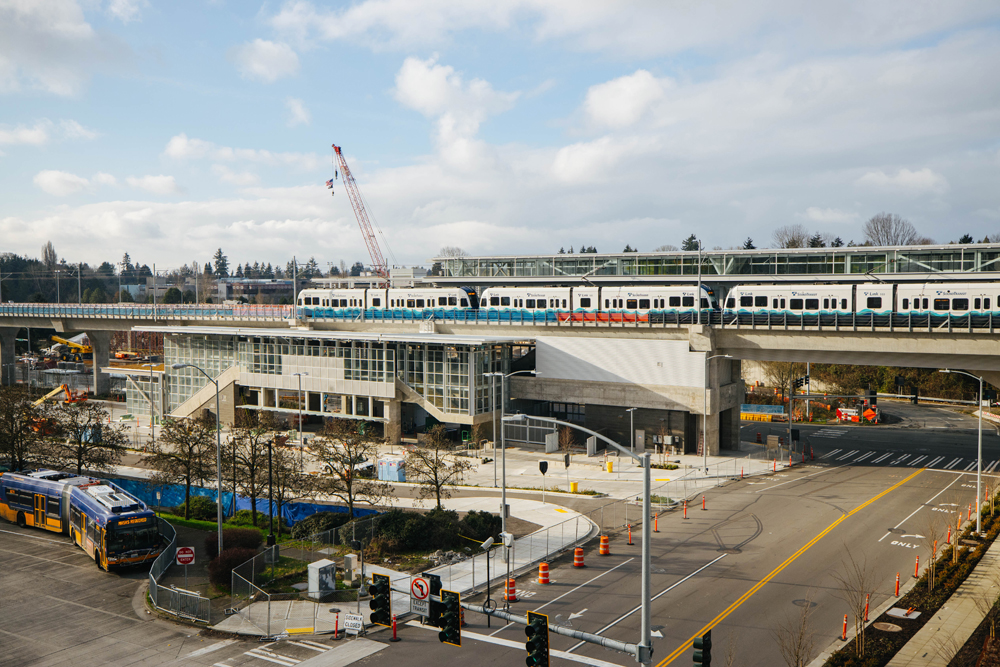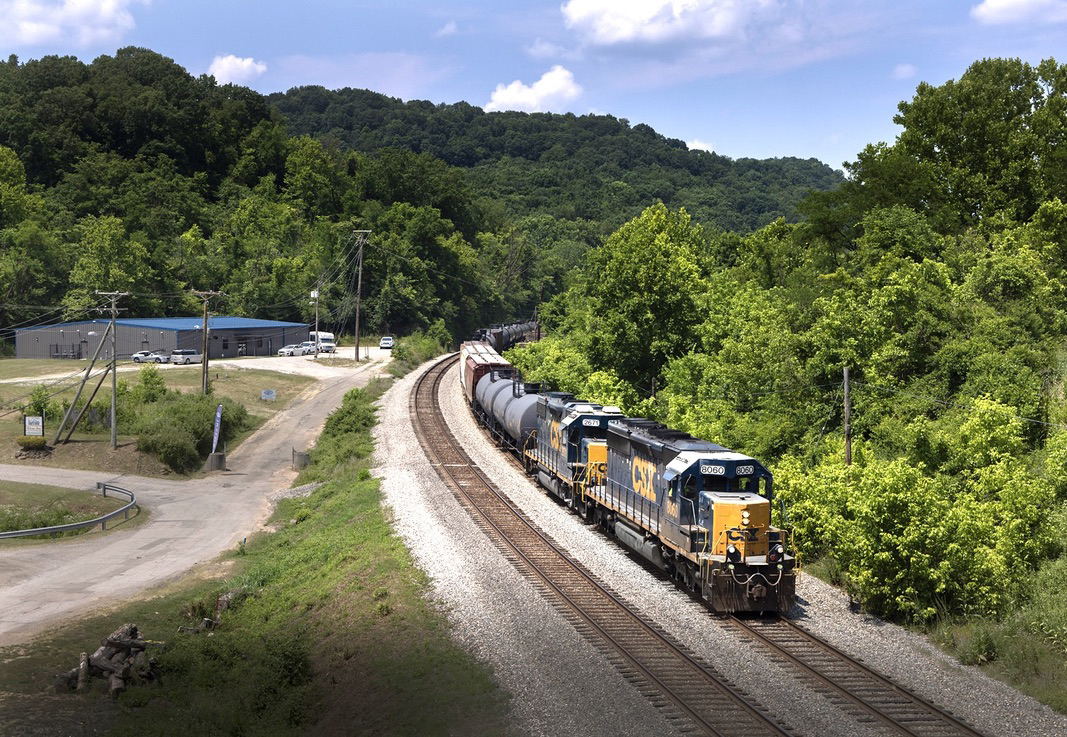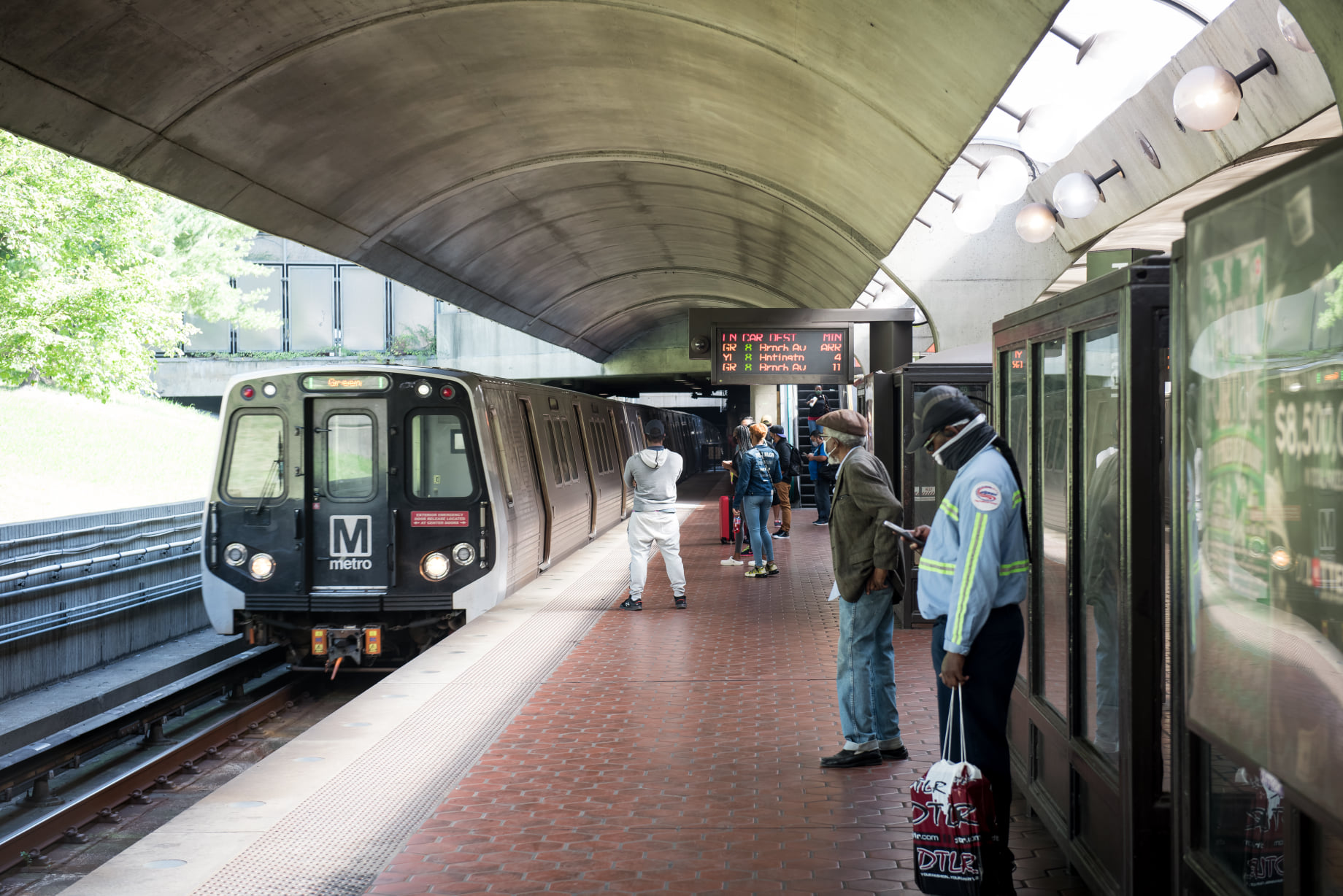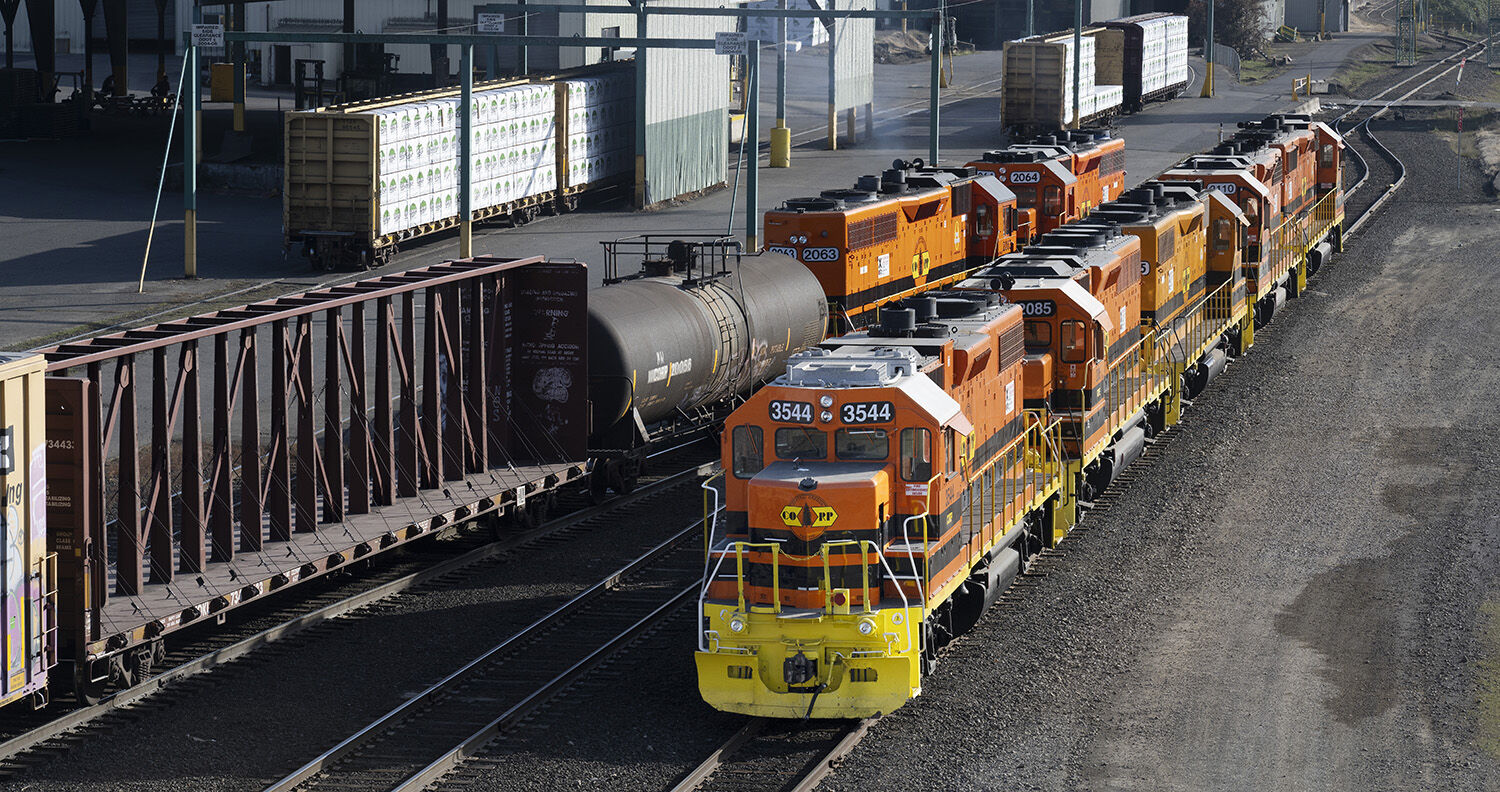
SEATTLE — A strike by concrete workers is placing the schedule of Sound Transit light-rail projects at risk, according to the agency’s CEO.
KIRO Radio reports that CEO Peter Rogoff told the Sound Transit board that completion dates of the four light-rail extension projects in progress — to Lynnwood, Bellevue, Redmond, and Federal Way — “are increasingly in doubt.” The extensions are scheduled to open in 2023 and 2024.
More than 300 Teamsters concrete workers went on strike Dec. 3 against six concrete suppliers, seeking improved pay and benefits. The suppliers have offered a 17% raise over three years plus improved medical benefits, but the workers say that’s still well below the market rate.
Rogoff said the projects have missed delivery of more than 26,000 cubic yards of concrete. “That’s the equivalent of more than 2,600 truckloads, or, for perspective, a line of concrete trucks running back to back for more than 17 miles.” Another 650 deliveries are due in the next two weeks. Contractors have laid off about 230 workers because of the strike so far, Rogoff said, and another 160 jobs are at risk.
The Seattle Times reports that King County, which includes Seattle, has made an attempt to help end the strike by soliciting bids from concrete companies to become its exclusive suppliers for at least three years — but they must have a union contract in place with their workers.














I misread the headline. I thought that a train or truck struck concrete!
It’s a concrete worker strike, not concrete strike.
Only in Seattle. Can’t pay union scale in a town that pushes the living wage for McDonalds and Starbucks?
Yes, ironic.
What does union scale have to do with market rate. If these are the only concrete suppliers in Seattle, then the rate they pay their workers is the market rate for that area or do you not understand how market rates work?
Gerald, I was highlighting the irony of the level of importance they place on Starbucks baristas (which are unionizing currently) against brick and mortar infrastructure workers. They wouldn’t be striking if their pay was near “market”. This is how unions work, they negotiate a new contract or they strike.